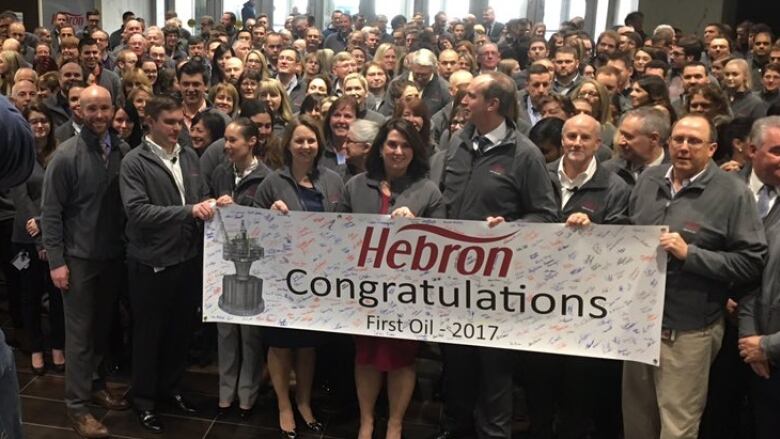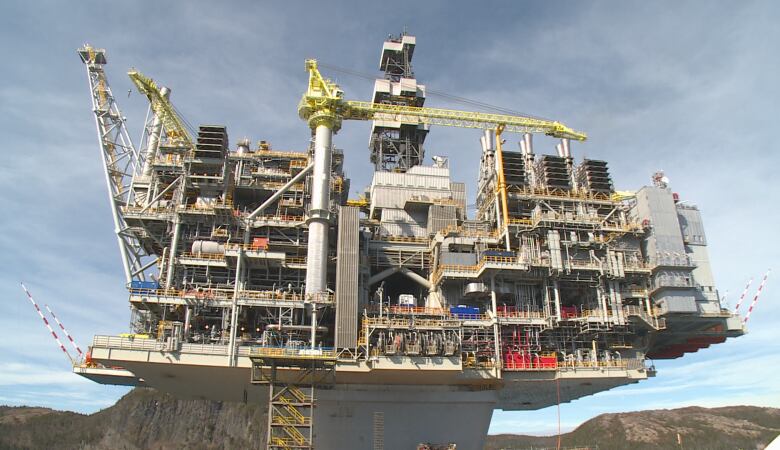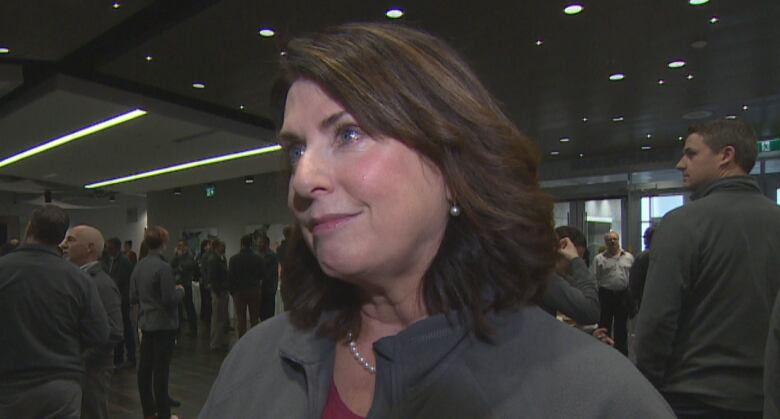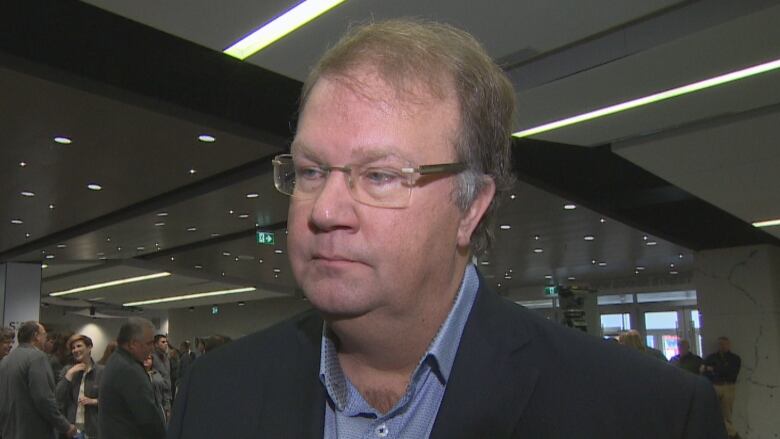First oil pumped at Hebron offshore platform
Natural Resources Minister Siobhan Coady says royalties to province will come 'over time'

ExxonMobilconfirmed Tuesday that the Hebronoffshore oil platform has produced its first oil.
Through a livevideo link from the platform, offshore installation manager Paul Dwyerannounced that the facility had pumped what is expected to be the first drop of hundreds of thousands of barrels of oil.
"On behalf of ExxonMobil Canada and all of the workers here on the Hebronplatform, I'm very pleased to announce that as of 11:03 on November 27th, the Hebronplatform successfully and safely achieved first oil," he said.
"This is a very important andimpressive milestone. It's what we camehere to do, and all of the workers at the platform were very excited to share this news with you."
The official announcement of first oil from the Hebron platform #cbcnl pic.twitter.com/Q8MgLo6acS
—@PeterCBCThe milestone was reached a month ahead of schedule and tocelebrate, all of the staff who worked on the project were given jackets for the eventat ExxonMobil's office atCabot Place in St. John's Tuesday morning.
Right now, the platform is drilling one well but in coming years as it reaches full capacity it will be drilling 20 or 30 wells and producing 150,000barrels of crude per day, according to ExxonMobil.
The $14-billion platform was towed to itssite 350 kilometres southeast of Newfoundland in June after seven years of construction at Bull Arm, Trinity Bay.
The Hebron oil field was first discovered in 1980, and is estimated to produce more than 700 million barrels of oil throughout the lifespan of the project.

The structure is 278 metres high, has a 130-metre diameter through the base, weighs750,000 tonnes and has living quarters for 220 people.
The platform took 40 million work hours to build, andit's expected to produce 150,000 barrels of oil per day at peak production.
There's cake and grey fleece jackets for all the staff #cbcnl pic.twitter.com/PjBMEIrshc
—@PeterCBCWhile the oil may be flowing at the platform, the revenue for the Newfoundland and Labrador government won't be for some time.
That's because the first money generated by Hebronwill go towards paying off the cost of building the platform, which was agreed to by the province and ExxonMobil in the early days of the project.
Revenue to 'grow over time'
But provincial Natural Resources Minister Siobhan Coadysays as production ramps up government will get billions of dollars over the course of the project.
"It will certainly be a number of years before we get the larger revenues in terms of the royalties," she told CBCfollowing the announcement.

"They will grow over time because the capacity of the oil and gas will develop and they'll also have the payback of the platform itself."
Carbon pricing and the bottom line
As Newfoundland and Labrador prepares to announceits provincial carbon pricing plan this spring, it remains to be seen how that will affect the bottom line of the Hebronproject.
Paul Barnes, the director of Atlantic Canada and Arctic for the Canadian Association of Petroleum Producers, is advising the province to be cautious in its plan so asnot to scare away future investment in the oil and gas industry.

Barnes said new projects likeHebronuse state of the art methods such as reduced-flaring technology which redirects gas into the running of the platforminstead of just it burning off.
"The best thing about new projects, especially Hebron, is they are availing of the best available technology when it comes to emissions," he said
"Our emissions are generally low compared to older platforms or other jurisdictions."
With files from Peter Cowan













_(720p).jpg)


 OFFICIAL HD MUSIC VIDEO.jpg)
.jpg)



























































































